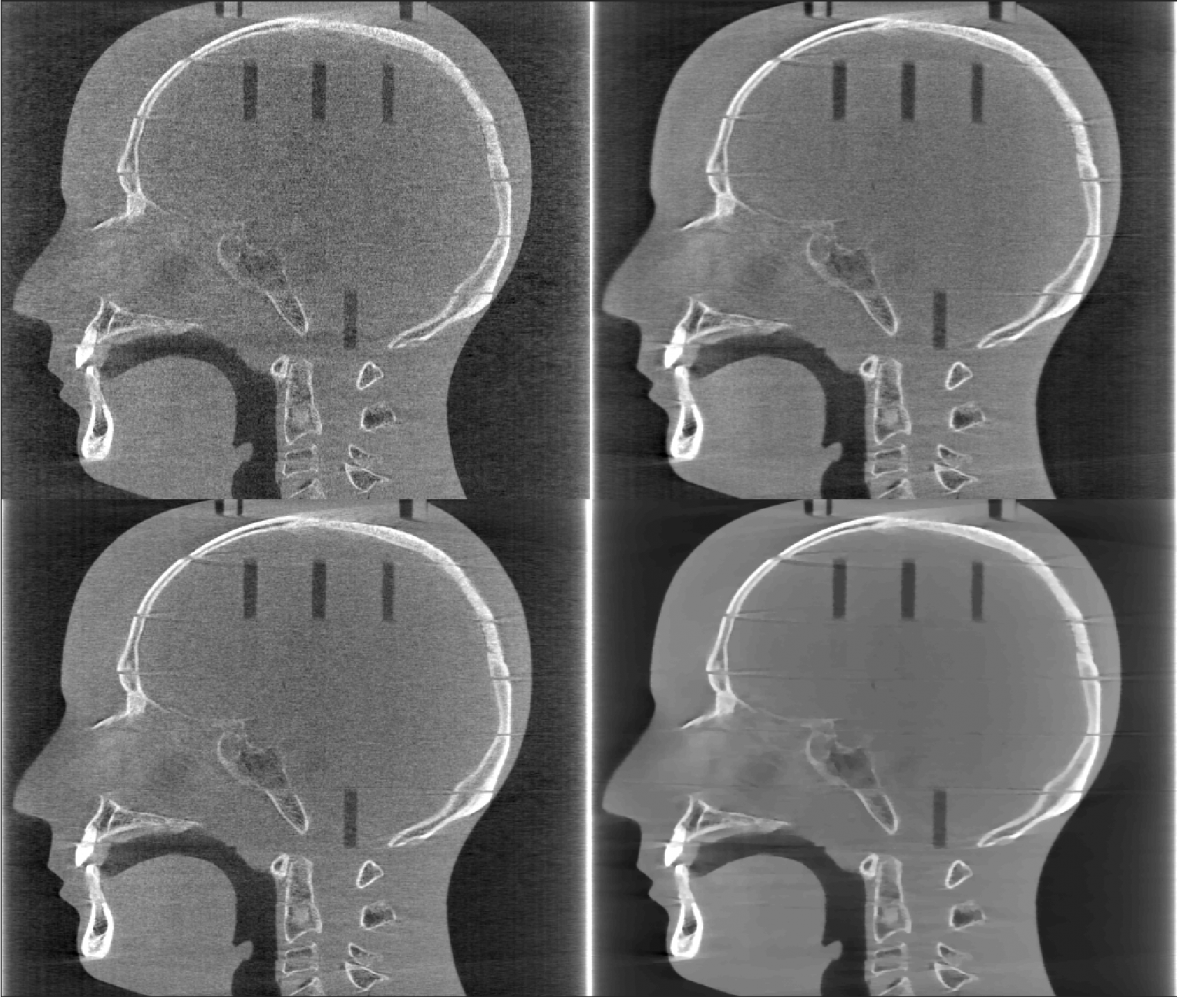
Researcher: Ander Biguri
Many advances in the field of inverse problems and optimization arise from the field of mathematics. However, often these methods are not trivial to implement in clinical settings, due to limitations in software and data, but most importantly due to limitations in cross-field communication and cooperation. Thus, breaching this gap is very important for the advancement of science and medicine. A research interest at CIA is thus on helping close this gap. Part of that is done through the TIGRE toolbox (github.com/CERN/TIGRE), a software that implements tens of inverse problem algorithms and allows for direct loading of CT data of over 8 manufacturers. In this research remit we are interested in applying the mathematical techniques of inverse problems and developing new ones. This includes Variational Regularization techniques, Krylov subspace algorithms, spectral regularization and other multi-dimensional regularization functions, 4D imaging (motion compensation), and so on. Similarly we are interested in clinical scenarios where reducing scanning dose is more significant, such as screening, radiotherapy (both photon and proton), image guided surgery, etc.
See some of the latest scientific publications for more info: Biguri, Ander, et al. "TIGRE: a MATLAB-GPU toolbox for CBCT image reconstruction." Biomedical Physics & Engineering Express 2.5 (2016): 055010. Landman, Malena Sabaté, et al. "On Krylov methods for large-scale CBCT reconstruction." Physics in Medicine & Biology 68.15 (2023): 155008. Hatamikia, Sepideh, et al. "Source-detector trajectory optimization for CBCT metal artifact reduction based on PICCS reconstruction." Zeitschrift für Medizinische Physik (2023).